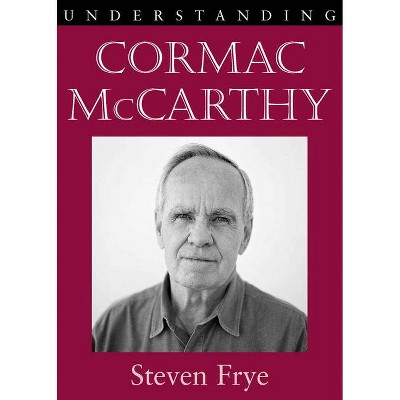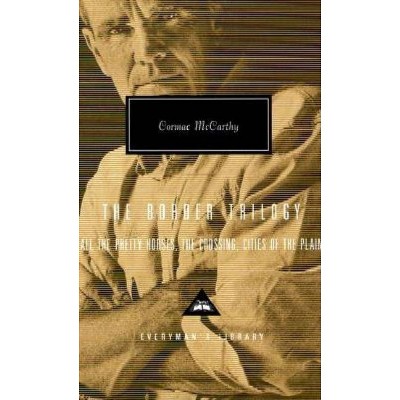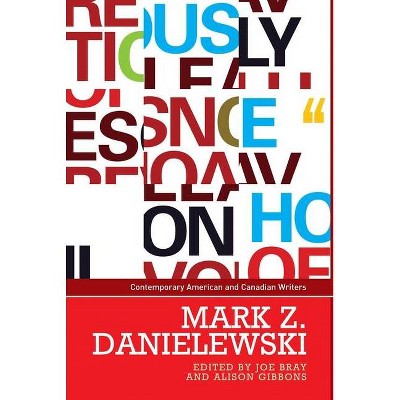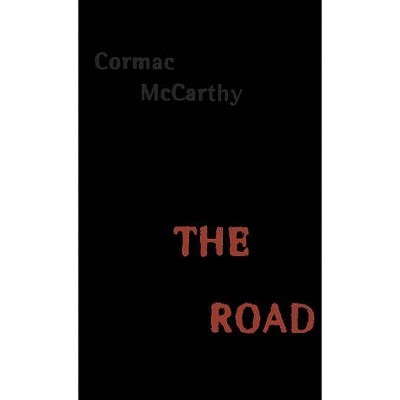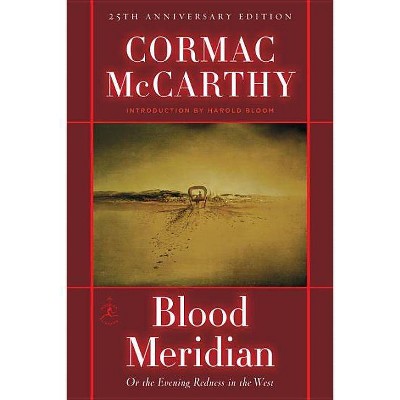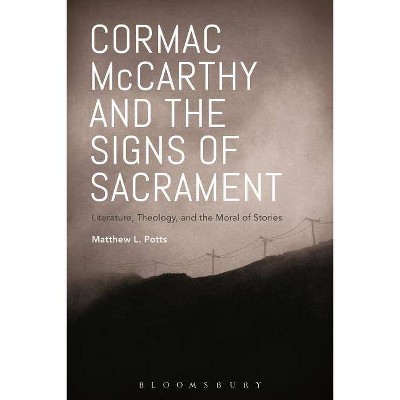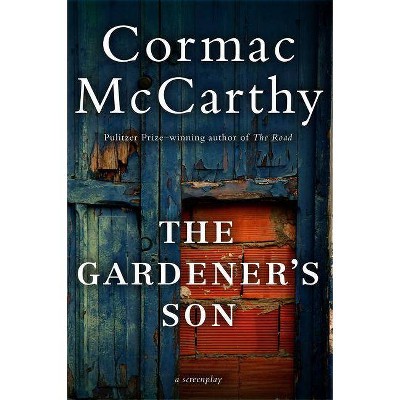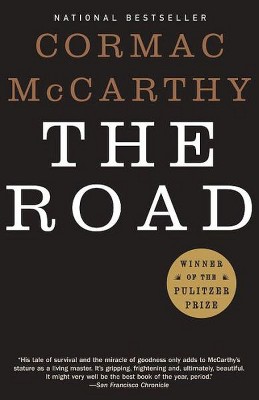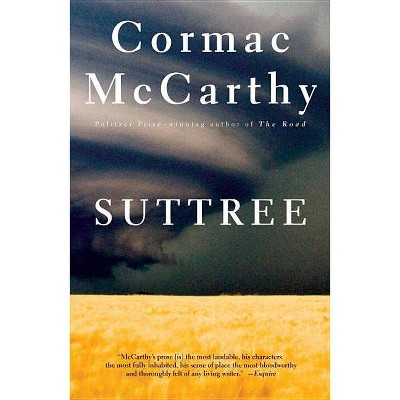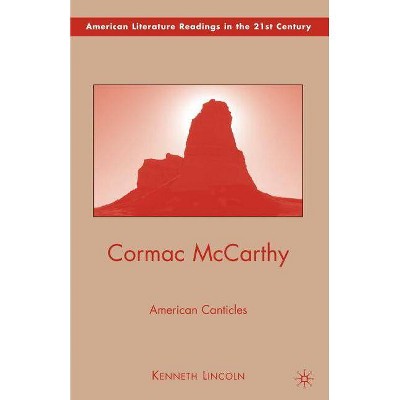Cormac McCarthy - (Contemporary American and Canadian Writers) by Lydia R Cooper (Hardcover)
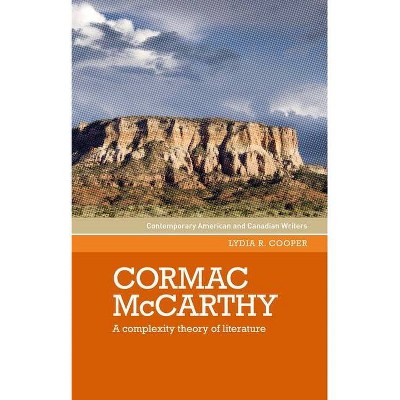
Similar Products
Products of same category from the store
AllProduct info
<p/><br></br><p><b> About the Book </b></p></br></br><i>Cormac McCarthy: A complexity theory of literature</i> offers the first sustained analysis of complexity science in McCarthy's literary works. McCarthy's fiction makes a significant case study demonstrating how literature can help us imagine and grapple with complex systems and crises, from global economic inequality to climate change.<p/><br></br><p><b> Book Synopsis </b></p></br></br>Combining the fields of evolutionary economics and the humanities, this book examines McCarthy's literary works as a significant case study demonstrating our need to recognise the interrelated complexities of economic policies, environmental crises, and how public policy and rhetoric shapes our value systems. In a world recovering from global economic crisis and poised on the brink of another, studying the methods by which literature interrogates narratives of inevitability around global economic inequality and eco-disaster is ever more relevant.<p/><br></br><p><b> From the Back Cover </b></p></br></br>'Wide-ranging and rich in new insights, this book impresses with its confident perception of the overarching values that unify McCarthy's body of work.' Dianne Luce, author of <i>Reading the World: Cormac McCarthy's Tennessee Period </i>'Lydia Cooper brilliantly reads McCarthy's peripatetic novels to reveal a single focused vision.... One cannot help but leave this book eager to return to a McCarthy seen entirely anew.<i>'</i> Lee Clark Mitchell, Holmes Professor of Belles-Lettres, Princeton University 'A brilliant, elegant, and incisive inquiry into the scientific and philosophical ideas that inform McCarthy's work.' Steven Frye, Professor and Chair of English, California State University, Bakersfield 'With this timely and fascinating book, Lydia Cooper draws together the three most recent and robust points of interest in McCarthy studies - economics, environmentalism, and complexity theory - an intersection of topics that is broadly applicable in our contemporary world as well.' Stacey Peebles, Marlene and David Grissom Professor of Humanities, Associate Professor of English at Centre College <i> Cormac McCarthy: A complexity theory of literature </i>offers the first sustained analysis of McCarthy's literary engagement with complex systems, from food webs to evolutionary economics. Focusing on McCarthy's depiction of the role of economics and art on global inequality and eco-disaster, this book argues that McCarthy makes a compelling case study that challenges us to recognise the interrelated complexities of economic policies, environmental crises, and how literature intervenes in and shapes public policy, rhetoric, and personal value systems. This book is the first comprehensive study of the influence of complexity theory on McCarthy's ten novels, two published screenplays and plays, and three unpublished screenplays to date. In addition to this unique contribution to McCarthy studies, this book models a complexity theory-informed approach to literary studies, uniting stylistic analysis with relevant contextual political, historical, and cultural theories of narrative. Drawing on archival materials as well as on complexity research published through the Santa Fe Institute and scholarly work on McCarthy and on current modes of literary analysis that offer timely interventions in our understanding of the role of literature in shaping our understanding of the world, this book has broad appeal and will be of interest to scholars at the undergraduate through postgraduate levels as well as professional scholars interested in McCarthy, in contemporary American literature, and in the theory and practice of literary studies.<p/><br></br><p><b> Review Quotes </b></p></br></br><br>'In her foundational study of McCarthy's engagement with complex adaptive systems, Cooper gracefully assimilates historical, economic, environmental, and complexity studies, archival documents, and previous scholarship to explore McCarthy's cultural critique of the intersecting American systems of twentieth- and twenty-first-century economic imperialism, consumer capitalism, and criminal justice, and the disruption of complex ecological systems. Turning from problems to solutions in her later chapters, she shows how McCarthy's works advance an ethic of care for humans, animals, and the environment, and she examines the roles that storytelling and nomadism can play in promoting such an ethic. Wide-ranging and rich in new insights, this book impresses with its confident perception of the overarching values that unify McCarthy's body of work.' Dianne Luce, author of <i>Reading the World: Cormac McCarthy's Tennessee Period </i>'Lydia Cooper brilliantly reads McCarthy's peripatetic novels to reveal a single focused vision, one that exposes the predations of capitalist excess against a fragile ecological balance. McCarthy's very syntax and style, in all its experimental variations, everywhere fixes our gaze on what has been lost (or soon will be). In turn, Cooper's triumph lies in her own ambulatory reading of fictional cars and horses, animate landscapes and insensible figures, Gothic loomings, climate crises, and food webs. One cannot help but leave this book eager to return to a McCarthy seen entirely anew.' Lee Clark Mitchell, Holmes Professor of Belles-Lettres, Princeton University 'Cormac McCarthy: A Complexity Theory of Literature is a brilliant, elegant, and incisive inquiry into the scientific and philosophical ideas that inform McCarthy's work. Rich with social and political implications in the realm of environmentalism and ecocriticism, the volume moves beyond general themes to advance McCarthy as both prophet and commentator, making his work relevant to a host of perennial and contemporary issues and concerns.' Steven Frye, Professor and Chair of English, California State University, Bakersfield 'With this timely and fascinating book, Lydia Cooper draws together the three most recent and robust points of interest in McCarthy studies - economics, environmentalism, and complexity theory - an intersection of topics that is broadly applicable in our contemporary world as well.' Stacey Peebles, Marlene and David Grissom Professor of Humanities, Associate Professor of English at Centre College<br><p/><br></br><p><b> About the Author </b></p></br></br>Lydia R. Cooper is Associate Professor of English at Creighton University
Price History
Cheapest price in the interval: 120.99 on November 8, 2021
Most expensive price in the interval: 120.99 on December 20, 2021
Price Archive shows prices from various stores, lets you see history and find the cheapest. There is no actual sale on the website. For all support, inquiry and suggestion messages communication@pricearchive.us
